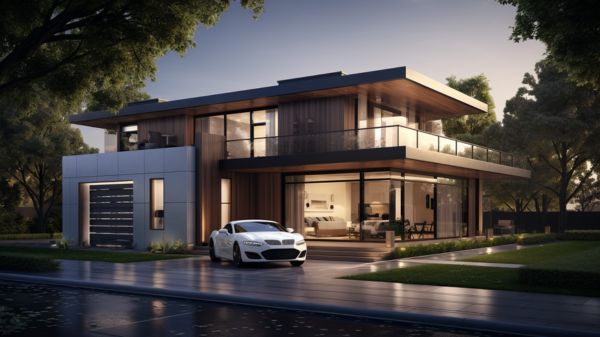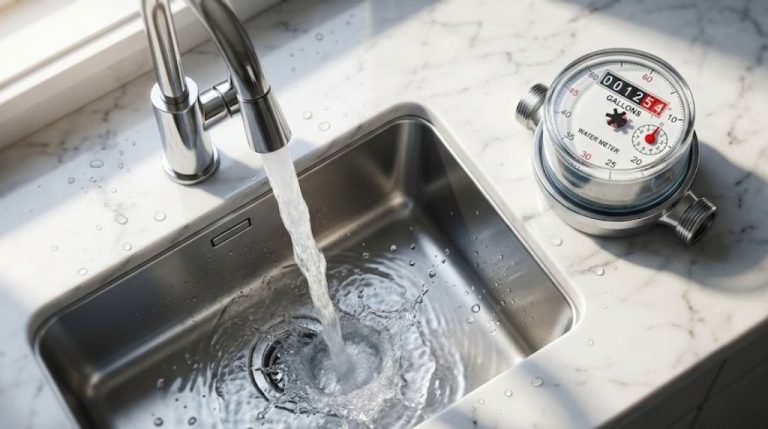Are you tired of wasting energy and money on your monthly bills? Imagine a world where your home is not only smart but also energy-efficient.
With smart home technology, you have the power to make this a reality. By harnessing the latest innovations, such as smart thermostats, lighting automation, and energy-saving appliances, you can minimize your energy consumption without sacrificing comfort or convenience.
Join the movement towards a more sustainable future and take control of your energy usage with smart home tech.
Benefits of Smart Home Technology
With smart home technology, you can significantly reduce energy consumption through the use of automated systems. The benefits of automation are numerous.
Firstly, smart home devices can automatically adjust lighting and thermostats based on occupancy and time of day, optimizing energy usage. This not only saves you money on your utility bills but also reduces your carbon footprint.
Secondly, smart home technology offers improved home security. You can remotely monitor your home through surveillance cameras and receive real-time alerts if any suspicious activity is detected. Additionally, smart locks and door/window sensors provide an extra layer of protection, allowing you to control access to your home and receive notifications of any unauthorized entry attempts.
Energy Saving Features of Smart Homes
Maximize energy efficiency with the energy-saving features of smart homes. These advanced technologies not only help you reduce your carbon footprint but also save money on your energy bills.
Here are the top energy-saving features of smart homes:
- Energy monitoring: Smart homes are equipped with energy monitoring systems that allow you to track and analyze your energy usage in real-time. This data helps you identify areas where you can make changes to optimize energy consumption.
- Smart plugs: These innovative devices can be plugged into your existing electrical outlets and connected to your smart home system. Smart plugs enable you to remotely control and schedule the power supply to your appliances and electronics. By turning off devices when not in use, you can significantly reduce unnecessary energy consumption.
Investing in smart home technology with energy monitoring capabilities and smart plugs won’t only help you save money but also contribute to a more sustainable future. Join the growing community of smart homeowners who are making a difference in energy conservation.
Smart Thermostats: Control Your Energy Usage
Take control of your energy usage with the smart thermostat feature of your smart home.
Smart thermostats are an essential tool for energy conservation, offering energy efficient heating and remote temperature control.
These devices are designed to optimize your home’s heating and cooling systems, reducing energy waste and saving you money.
With energy efficient heating, smart thermostats can help you achieve a comfortable indoor temperature while minimizing energy consumption.
Additionally, they provide remote temperature control, allowing you to adjust the temperature of your home even when you’re away.
This feature is especially useful for those who travel frequently or have unpredictable schedules.
Lighting Automation for Energy Efficiency
To further enhance energy conservation in your smart home, consider implementing lighting automation for increased energy efficiency. Lighting control systems, coupled with motion sensors, can significantly reduce energy waste and lower your electricity bills. Here’s why lighting automation is a smart choice for your energy-saving goals:
- Convenience: Lighting automation allows you to effortlessly control the lights in your home with just a few taps on your smartphone or through voice commands. You can easily turn lights on or off, dim them, or create customized lighting schedules, all from the comfort of your couch.
- Energy savings: By integrating motion sensors into your lighting control system, lights will automatically turn on when someone enters a room and turn off when no motion is detected. This eliminates the chance of lights being left on unnecessarily, leading to substantial energy savings over time.
With lighting automation and motion sensors, you can take a proactive step towards reducing your energy consumption, saving money, and creating a more sustainable future in your smart home.
Smart Appliances: Minimize Energy Consumption
Smart appliances offer a practical solution for minimizing energy consumption in your smart home. When it comes to refrigeration, smart appliances are designed to reduce energy waste. These intelligent refrigerators use advanced sensors to optimize temperature settings based on your usage patterns, ensuring that energy isn’t wasted unnecessarily. They also come with features like door alarms and energy usage monitoring, allowing you to stay informed about your energy consumption.
Another area where smart appliances can make a significant impact is washing machines. Energy-efficient smart washing machines use advanced technologies like load sensing and water level adjustment to minimize energy and water usage. These machines are designed to optimize the washing process, using the right amount of water and detergent for each load, resulting in energy savings without compromising on cleaning performance.
Conclusion
In conclusion, smart home technology is a game-changer when it comes to energy conservation. With its energy-saving features, such as smart thermostats and lighting automation, you can effortlessly control your energy usage and minimize consumption.
Imagine a home where lights automatically turn off when not in use and appliances intelligently adjust their power usage. This is the future of energy efficiency, and smart homes are leading the way towards a greener and more sustainable future.




